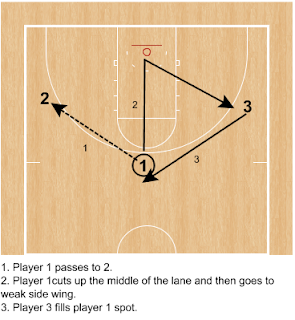Ever since I first touched a basketball I have loved this game. Growing up in Chicago and being able to witness the Michael Jordan years cemented my love for the game. Rain or shine, cold or snow, sunshine or darkness, I would always be outside shooting hoops in the backyard. My neighbors must have thought I was nuts but nobody ever complained. Through all of the practice, I did manage to become a decent basketball player and I could hold my own in most pick up games, but I made the huge mistake of not trying out for my high school team. As a greek kid growing up in the US, your identity comes from the church you attend. I attended Holy Trinity church in Chicago and made most of my friends and acquaintances at the church. It was because of this that my loyalty belonged to the church and I made my choice to play basketball in a church league instead of in high school. Now don't get me wrong, I was never good enough to play ball beyond the h...

